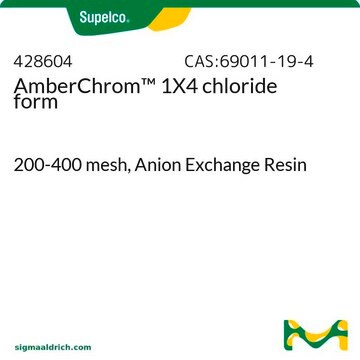22184
Cellulose Chromatography Resin
acid washed, powder, 60-700 mesh
Synonym(s):
Cellulose powder, Cotton linters
About This Item
Recommended Products
product name
Cellulose, acid washed, powder, for column chromatography
grade
for column chromatography
Quality Level
form
powder
quality
acid washed
technique(s)
LPLC: suitable
fiber L
0.02-0.25 mm
matrix
Cellulose
matrix active group
polymer
particle size
20-250 μm
cation traces
Cu: ≤10 mg/kg
Fe: ≤20 mg/kg
separation technique
size exclusion (SEC)
InChI
1S/C12H22O11/c13-1-3-5(15)6(16)9(19)12(22-3)23-10-4(2-14)21-11(20)8(18)7(10)17/h3-20H,1-2H2/t3?,4?,5?,6?,7?,8?,9?,10-,11?,12+/m1/s1
InChI key
GUBGYTABKSRVRQ-WFVLMXAXSA-N
Looking for similar products? Visit Product Comparison Guide
General description
Application
Storage Class Code
11 - Combustible Solids
WGK
WGK 1
Flash Point(F)
Not applicable
Flash Point(C)
Not applicable
Personal Protective Equipment
Choose from one of the most recent versions:
Already Own This Product?
Find documentation for the products that you have recently purchased in the Document Library.
Customers Also Viewed
Our team of scientists has experience in all areas of research including Life Science, Material Science, Chemical Synthesis, Chromatography, Analytical and many others.
Contact Technical Service




